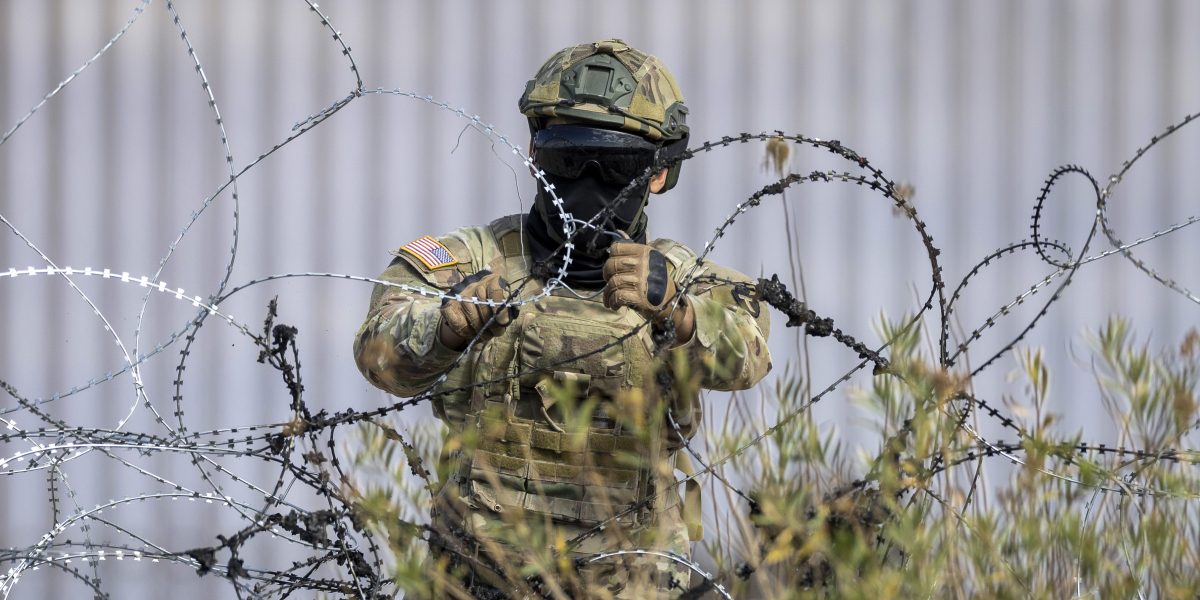The Pentagon was publicly dismissive of Trump’s pledge to employ the military to conduct mass deportations. “The Department does not comment on hypotheticals or speculate on what may occur,” a Defense Department spokesperson told The Intercept.
There are an estimated 13 million undocumented immigrants living in the U.S. A onetime mass deportation operation would cost at least $315 billion, according to a recent analysis from the American Immigration Council. A longer-term project involving arrests, processing, and deportations would cost around $968 billion over more than 10 years. The report emphasizes that this is a “highly conservative” estimate. It does not take into account the likelihood that this deportation operation of 13 million people would require the construction and staffing of detention facilities on a scale that dwarfs the current U.S. prison system, which held 1.9 million people all told in 2022 — let alone the effect of removing an estimated 5 percent of the American workforce from the country, who collectively pay over $105 billion in taxes each year.
In 2023, Trump’s top immigration policy adviser, Stephen Miller, indicated that military funding would be used to build “vast holding facilities that would function as staging centers” for immigrants awaiting deportations. Throughout the presidential race, Trump also vowed to mobilize the National Guard to assist with his planned expulsions. Experts say that military involvement in any deportation plan would mark a fundamental shift for the armed forces, which do not normally conduct domestic law enforcement operations.
Trump has also said he would invoke the Alien Enemies Act of 1798, to expel suspected members of drug cartels without due process. That archaic law allows for summary deportation of people from countries with which the U.S. is at war, that have invaded the United States, or have committed “predatory incursions.”



6th paragraph